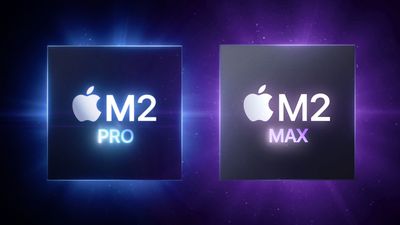TSMC will manufacture Apple's upcoming "M2 Pro" and "M3" chips based on its 3nm process, according to Taiwanese industry publication DigiTimes.

"Apple reportedly has booked TSMC capacity for its upcoming 3nm M3 and M2 Pro processors," said DigiTimes, in a report focused on competition between chipmakers like TSMC and Samsung to secure 3nm chip orders. As expected, the report said TSMC will begin volume production of 3nm chips in the second half of 2022.
In his latest newsletter, Bloomberg's Mark Gurman said he expects the M2 Pro to be used in the 14-inch MacBook Pro, 16-inch MacBook Pro, and a high-end Mac mini. As for the M3, Gurman expects the chip to be used in an updated 13-inch MacBook Air, an all-new 15-inch MacBook Air, a new iMac, and potentially a new 12-inch MacBook.
In all likelihood, the M2 Max would also be manufactured based on a 3nm process in this scenario. That chip would be suitable for the highest-end MacBook Pro configurations, and the Mac Studio if Apple chooses to update that computer within the next year or so.
While it was widely expected that the M3 would be 3nm, it is more notable that the M2 Pro might be as well, given that the standard M2 chip that debuted in the new MacBook Air and 13-inch MacBook Pro remains built based on TSMC's 5nm process. Both the M1 and M1 Pro chips share the same process, so the M2 and M2 Pro being built on different processes would represent a change of course for Apple silicon in the Mac.
Vadim Yuryev, co-host of the YouTube channel Max Tech, has adamantly expressed his opinion that the M2 Pro will indeed be 3nm in a series of tweets over the last few weeks. In the past, Yuryev accurately revealed that the M1 Ultra chip in the Mac Studio would effectively be two M1 Max chips connected as a singular chip.
If the 3nm report is accurate, the performance delta between the M2 Pro and M2 could be even greater than between the M1 Pro and M1. However, it's worth tempering expectations until any additional reports corroborate the M2 Pro chip being 3nm.

Comments
Post a Comment